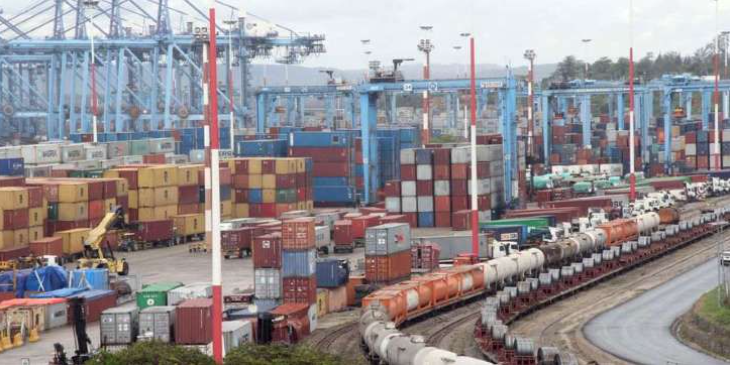
The Port of Mombasa, Kenya’s largest and busiest seaport is critical to the country’s economy since it facilitates products import and export. However, the port has encountered cargo congestion and overstaying containers, which have the ability to disrupt trade and cause bottlenecks. To solve this issue, the Kenya Ports Authority (KPA) and the Kenya Revenue Authority (KRA) are working together to remove the backlog of overstayed cargo and streamline port operations. In this blog article, we will look at their attempts to reduce congestion and improve the efficiency of the Mombasa Port.
Understanding the Challenge of Overstayed Cargo.
Overstayed cargo is defined as containers that have remained at the port for a period of time that exceeds the permissible dwell time. Administrative delays, disagreements, financial concerns, and logistical challenges all contribute to this circumstance. Overstaying cargo can cause port congestion, increased storage expenses, and supply chain disruption over time.
The Collaborative Approach of KPA and KRA.
KPA and KRA have collaborated to solve the issue of overstayed cargo at the Port of Mombasa, recognizing the need for a coordinated effort. The following are the primary steps taken by KPA and KRA:
- Increased Data Sharing: KPA and KRA are collaborating to share data and information about container tracking, customs declarations, and duty payments. This allows for better cargo monitoring, identifying overstays more quickly, and initiating required steps.
- Disputed Cargo Clearance: Disputes over customs valuations, classifications, or other concerns frequently result in cargo being held at the port. KRA is aggressively engaged with importers and clearing agents to quickly resolve these disputes and allow cargo discharge.
- Simplifying Customs Procedures: KRA is aiming to simplify customs procedures in order to eliminate delays and guarantee cargo is cleared efficiently. This includes the implementation of computerized customs systems and the expediting of customs clearance for complying importers.
- Monitoring and Enforcement: KPA is keeping a close eye on containers that have surpassed the permitted dwell time. They are launching enforcement steps in collaboration with the KRA to guarantee compliance with clearance criteria.
- Engagement with Stakeholders: KPA and KRA are actively working with stakeholders such as shipping lines, clearing agents, importers, and exporters. These discussions are intended to develop collaboration, increase communication, and discover solutions to the problems that cause cargo overstays.
The Benefits of Clearing Overstayed Cargo.
Clearing overstayed cargo at the Port of Mombasa holds several advantages:
- Reduced Port Congestion: Removing overstayed cargo on time reduces port congestion, allowing for smoother port operations and faster vessel turnaround times.
- Reduced Storage Costs: Importers and shipping lines suffer storage fees for overstaying cargo. These expenditures are reduced by clearing such cargo as soon as possible.
- Improved Trade Facilitation: Efficient cargo clearance processes facilitate trade, making the Port of Mombasa a more appealing gateway for imports and exports.
- Enhanced Revenue Collection: As properly cleared cargo secures the payment of duties and taxes, KRA benefits from enhanced revenue collection.
- Increased Investor Confidence: A well-functioning port that has less congestion and cargo delays can boost investor confidence in Kenya’s economic environment.
In conclusion, recognizing the importance of efficient port operations for the country’s economy, KPA and KRA are taking substantial steps to clear overstayed cargo at the Port of Mombasa. They are working towards a more streamlined and responsive port system through teamwork, data exchange, and stakeholder involvement. Kenya hopes to strengthen its trading capacity, attract investors, and ensure the smooth flow of products via the Port of Mombasa by resolving the issues connected with overstayed cargo. This proactive strategy bodes well for the region’s future trade and commerce.

